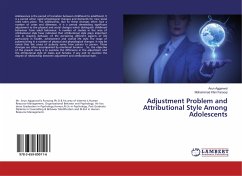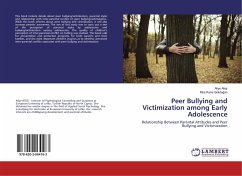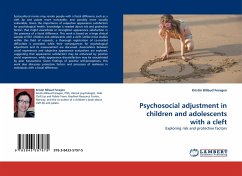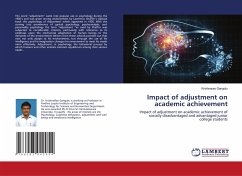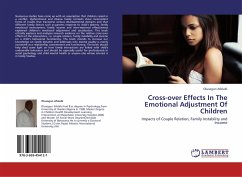
Risk and resilience in adolescents
The role of cognitive processing styles in adjustment of adolescents from interparental conflict divorced families
Versandkostenfrei!
Versandfertig in 6-10 Tagen
52,99 €
inkl. MwSt.

PAYBACK Punkte
26 °P sammeln!
Traditionally, Chinese people value intact families and perceive divorce as a stigma that will bring forth detrimental effect not only to the divorced couples but also to their children. Hong Kong, a westernalized Chinese community, encounters an increasing high rate of divorce in recent years. There is a grave concern from educators, social workers and mental health professionals about the negative impact of high conflict divorce on the children. This book examines the risk of high conflict divorce on the children and explores factors that may protect them from it. Results indicate that that ...
Traditionally, Chinese people value intact families and perceive divorce as a stigma that will bring forth detrimental effect not only to the divorced couples but also to their children. Hong Kong, a westernalized Chinese community, encounters an increasing high rate of divorce in recent years. There is a grave concern from educators, social workers and mental health professionals about the negative impact of high conflict divorce on the children. This book examines the risk of high conflict divorce on the children and explores factors that may protect them from it. Results indicate that that adolescents from divorced families show more symptoms and they also witness more interparental conflict than those from two-parent intact families. However, their attentional styles play an important role in affecting their adjustment. Lastly, the effect of interparental conflict is mediated by the children's self-blaming tendency. These findings should be especially useful to parents, educators, and youth workers or anyone else who is interested in developing resilience in youngsters.



